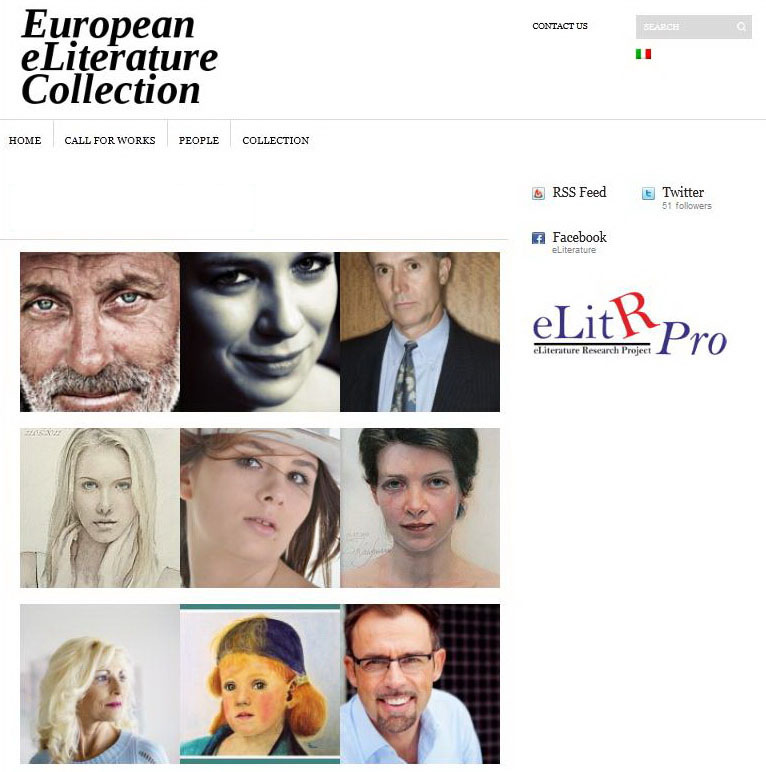Search
The search found 24 results in 0.011 seconds.
Search results
-
Is e-literature just one big anti-climax?
Is e-literature just one big anti-climax?
Eric Dean Rasmussen - 19.08.2011 - 12:15
-
Do the Domains of Literature and New Media Art Intersect? The Cases of Sonnetoid web projects by Vuk Ćosić and Teo Spiller
Franco Moretti's notion of “distant reading” as a complementary concept to the “close reading”, which emerged alongside the computer based analysis and manipulation of texts, finds its mirror image in a sort of “distant” production of literary works – of a specific kind, of course. The paper considers the field, where literature and new media creativity intersect. Is there such a thing as literariness in “new media objects” (Manovich)? Next, by focusing on the three web sites that generate texts resembling and referring to sonnet form the paper asks the question about the new media sonnet and, a more general one, about the new media poetry. A mere negative answer to the two questions doesn't suffice, because it only postpones the unavoidable answer to the questions posed by existing new media artworks and other communication systems. Teo Spiller's Spam.sonnets can be viewed as an innovative solution to the question, how to find a viable balance between the author's control over the text and the text's openness to the reader-user's intervention.
Eric Dean Rasmussen - 30.08.2011 - 11:59
-
ELiterature Formalization and Pedagogical Implications
This paper deals with the eLiterature formalization and its pedagogical implications. Firstly, it considers the pressing need of an official formalization of Electronic Literature. Secondly, it provides a proposal for the appropriate pedagogical theory and methodologies necessary to take advantage of the possibilities offered by New Media Writing in educational contexts. Finally, it offers some examples of possible pedagogical practices which adopt Digital Literature.
Scott Rettberg - 06.10.2011 - 15:59
-
eLiterature questa (s)conosciuta. Storia e stato dell’arte, definizione e sistemi affini, generazioni e classificazione dei generi
Questo contributo profila il fenomeno della letteratura elettronica chiarendo alcuni equivoci e indicando le caratteristiche salienti che rendono una forma letteraria digitale ascrivibile a tale fenomeno. Esso offre inoltre una breve storia e l’attuale stato dell’arte della letteratura elettronica, analizza le condizioni necessarie per ascrivere un’espressione digitale all’ambito della eLiterature e descrive le interazioni che avvengono tra eLiterature, Net Art, Game Theory e Computer Science. Esso offre infine una panoramica sulle generazioni e i generi di letteratura elettronica, mostrandone le caratteristiche salienti.
Fabio De Vivo - 20.10.2011 - 16:12
-
Interview with Andy Campbell: “Digital Fiction and Interactive Fiction”
Interview with Andy Campbell: “Digital Fiction and Interactive Fiction”
Fabio De Vivo - 22.10.2011 - 11:14
-
Intervista con Caterina Davinio: “eLiterature, ePoetry e correlazioni”
Intervista con Caterina Davinio: “eLiterature, ePoetry e correlazioni”
Fabio De Vivo - 22.10.2011 - 11:20
-
Intervista con Filippo Rosso: “eLiterature e Hypertext Fiction"
Intervista con Filippo Rosso: “eLiterature e Hypertext Fiction"
Fabio De Vivo - 22.10.2011 - 11:23
-
eLiterature: la letteratura nell’era digitale. Definizione, concetto e statuto.
In questo contributo si analizza il concetto di eLiterature e il suo statuto digitale. Si considera quindi il rapporto tra letteratura ed eLiterature e si presentano le caratteristiche peculiari di quest’ultima. Attraversando i concetti di digital born, paper-under-glass, ibridità, mutagenabilità, ergodicità, agency e testualità digitale si offre infine una definizione di letteratura elettronica.
Fabio De Vivo - 22.10.2011 - 11:54
-
European eLiterature Collection
The European eLiterature Collection is a project developed as part of The eLiterature Research Project. The aim of the collection is to provide an essential tool to assist in formalizing e-Literature in Europe.
In this respect, the European eLiterature Collection Board of Editors, evaluates, reviews, and publishes on the web works of Electronic Literature by European authors.

Fabio De Vivo - 22.10.2011 - 12:16
-
eLiterature, analisi critica, strumenti interpretativi, potenzialità e possibilità applicative
This dissertation analyzes eLiterature in a multidisciplinary way, considering both the strictly literary aspect and correlated aspects such as the technological and educational ones.
Fabio De Vivo - 22.10.2011 - 13:22

